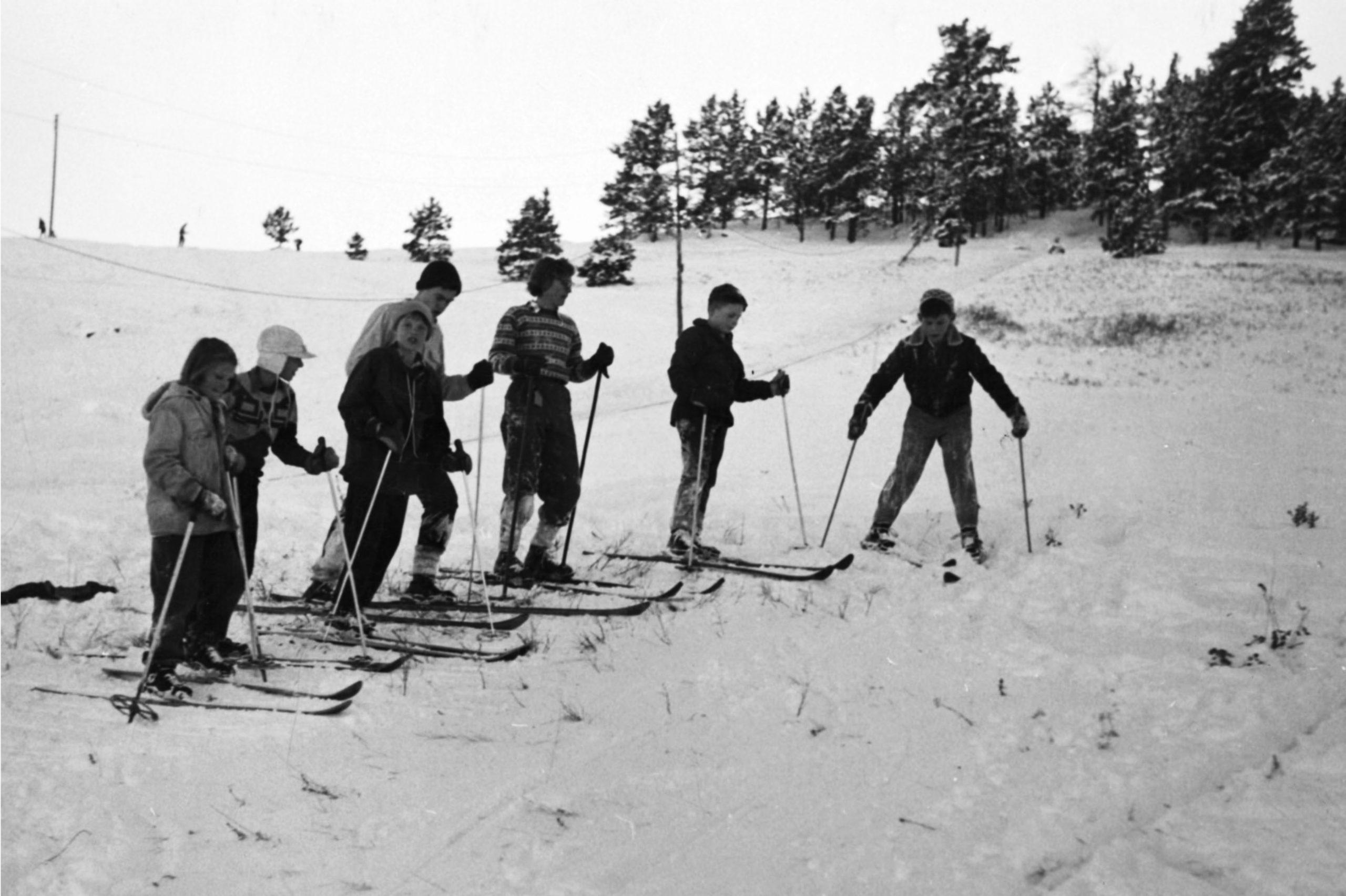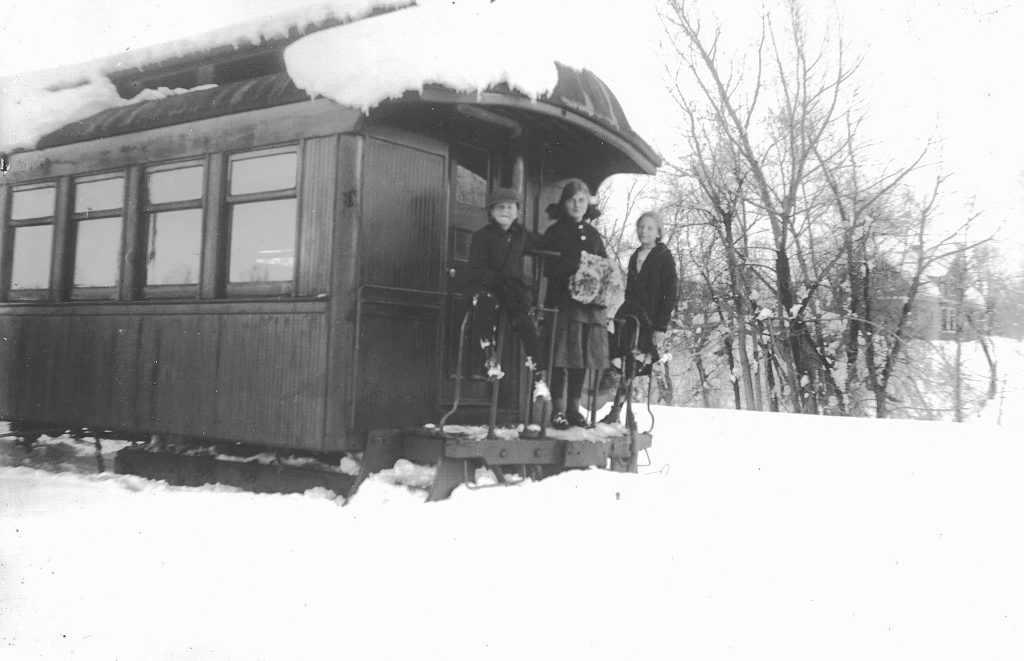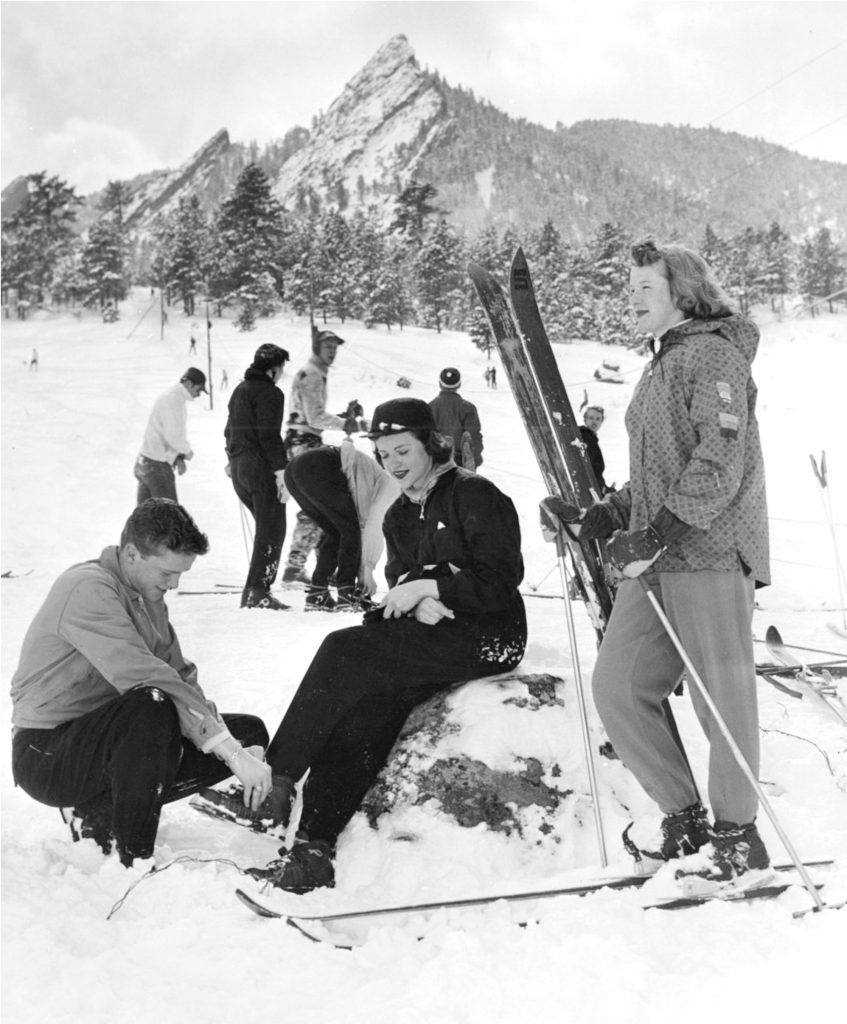
Kids, bundled tight in winter coats, gloves, scarves and hats, racing sleds down a gentle slope. Hot cocoa held in numb fingers, sipped by lips on reddened faces.
These common snow day scenes were once a right of passage for school children in much of the northern United States, a rare day of freedom treasured almost as much as summer vacation.
The sight of a mid-week frolic in the snow may soon look as antiquated as horse-drawn carriages and silent films. Since the COVID-19 pandemic forced children to attend school virtually, many districts decided to keep kids logging on when the weather forces them to stay home.
New York City schools did. So did Seattle’s, and a half-dozen in Colorado, including St. Vrain Valley. They now do shortened remote learning days: Students attend class virtually for 1.5-2 hours, then are free the rest of the day. Parents can opt out of remote learning; their children will receive excused absences.
“We have had over 90% participation during past inclement weather online learning days,” wrote district spokesperson Kerry McDermid, in response to Boulder Weekly’s questions. “Many parents want their students to have an opportunity to stay connected with their learning and engage with their teachers and classmates in our shortened online learning model, [and] many students also benefit from access to teacher office hours … to ask questions and receive individualized academic support.”
St. Vrain also considers it good career training, McDermid says. “We know that many future jobs and postsecondary education opportunities will rely on technology and involve a significant amount of virtual communication. We are providing our students with every opportunity to gain the skills and experiences they need to be prepared for success in the future.”

Not every district ditched snow days. A survey by K-12 news organization Education Week found that just 39% of principals and district leaders had switched to distance learning on bad weather days (although another 32% were considering it). Some who switched to remote learning in 2022 and 2023 reinstated severe weather days this school year, including districts in Boston and Washington, D.C.
Boulder Valley School District (BVSD) still cancels classes during inclement weather. It’s less of an active choice than a continuation of the way things have always been done, district spokesperson Randy Barber says.
“We are continuing to use the snow day protocols we’ve had since before I came to BVSD,” he wrote in response to emailed questions. “There was no formal action required.”
Barber also points to the complexities of virtual learning as reason to stick with snow days. “Outages due to storms, prep work needed to shift to a different mode of learning, equipment needed to participate” and teachers who need child care for their own children — “virtual days are difficult for a number of reasons.”
The argument may become moot as winters get warmer. “Snow days” actually cover extreme weather of any kind that impacts safety or transportation, including extreme cold. St. Vrain had one such remote learning day in January.
An analysis by the Colorado Climate Center shows that January temperatures along the northern Front Range are 3.9 degrees hotter, on average, than they were in 1895, 9News reported earlier this year.
The current storm brought BVSD its first fully fledged winter-weather day this year. Classes were cancelled Thursday, March 14. SVVSD switched to remote learning Thursday.

It’s unclear how local parents and kids feel about snow days. Neither district provided information on parent and student feedback: There was no need to collect any at BVSD, since nothing has changed, and St. Vrain dodged the question.
An article in The Talon Tribune, the student news site for Longmont’s Silver Creek High School, quoted a high school student defending snow days as an important chance to de-stress and “enjoy the season.” Teachers and counselors were also quoted; the author noted their “mixed opinions” about the policy and expressed “some hope for change,” informing students that they could petition the district’s superintendent to reinstate weather-related cancellations.
“Snow days used to be a day where students would get to sleep in or do what they wanted,” the article concluded. “It used to be a day for relaxation for some students while others might catch up on missing school work.”
While defenders of remote learning have argued that it prepares children for the future, others believe free time contributes to development.
“I definitely feel that unstructured play time is just as valuable as what they’d be learning” in school, says Emily Braucher, mother of two BVSD students. “It’s part of why I left the Northeast, because of that structured, very-academic focused culture.
“But,” she admits after a pause, for her to feel really good about her kids, 6 and 8, taking a snow day, “they have to be doing really well in school.”

Courtesy: Carnegie Library for Local History
Adults need snow days, too
Snow days are typically associated with elementary, middle and high schools, but colleges and universities have staff and students to protect, too! Just like their K-12 counterparts, institutions of higher learning are increasingly turning away from full-on closures in lieu of remote learning, according to a report from Inside Higher Ed.
Locally, CU Boulder’s protocol includes campus closures and cancellation of classes in the event of inclement weather (including snow, ice, tornadoes, flood and fire) or emergencies such as “chemical spills, air pollution advisories and other similar disasters.”
In-person and remote classes were cancelled during Thursday's snow storm
With three campuses (Longmont, Westminster, Fort Collins), Front Range Community College has been coordinating remote meetings and classes since 1995, according to communications director Jessica Peterson. But they’ll still cancel classes for a day if the weather necessitates it.
“Faculty and instructors will determine if their classes for the day will move to remote or be canceled,” Peterson wrote in response to emailed questions. But for storms lasting two or more days, “staff whose job can be performed remotely are expected to work remotely” and “as much as possible” classes would be remote, too.
The policy is flexible, Peterson notes: Faculty and staff have discretion to cancel classes during “extenuating circumstances” such as power outages.
Editor's note: This article has been updated to reflect recent closures. It was originally published prior to the March 14 snow storm.
